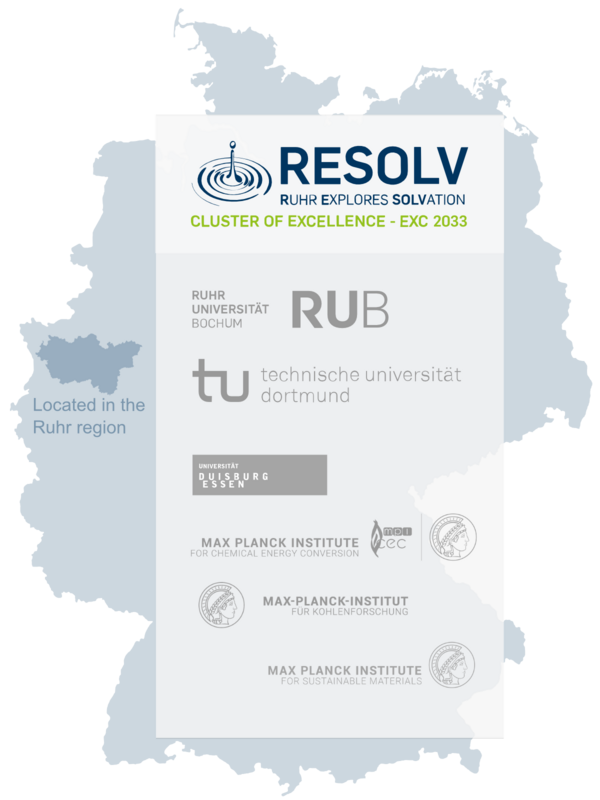Yu joined the Ruhr-University Bochum in 2023 as a Postdoc to study electrochemical interfaces using terahertz spectroscopy at the chair of RESOLV Spokesperson Martina Havenith. She studied Materials Science and Engineering at the Beijing University of Chemical Technology, China before earning her PhD at the Max Planck Institute for Polymer Research, Germany and the University of Amsterdam in the Netherlands.
Yu says about her work: “Water is very important in our daily life and industry. The water interface is a platform for physical chemistry, chemical reaction, and electron transfer and cooling. During my Ph.D., I mainly targeted several typical interfaces, the interface between air and aqueous solutions of volatile molecules (alcohol and carboxylic acid), the interface between surfactant and water, the graphene-nanographene interface, and the graphene-water interface. We tried to reveal the mechanisms behind different physicochemical processes at these interfaces. We employed surface-selective sum frequency generation (SFG) spectroscopy and charge carrier-sensitive Terahertz spectroscopy, including time-domain spectroscopy (TDS) and optical-pump-terahertz-probe (OPTP) spectroscopy, to understand the typical model interfaces.”
About the Chinese-German Chemical Association
The Chinese-German Chemical Association (CGCA), registered as Gemeinschaft Chinesischer Chemiker und Chemieingenieure in Deutschland e.V., is a non-profit Chinese academic organization for chemistry, chemical engineering and related fields, composed of members who have studied and worked in Germany. The main objective of CGCA is to promote academic exchanges among its members and to foster cooperation between Chinese and German academic and industrial institutions in chemistry and related fields. CGCA regularly organizes academic meetings and supports its members to participate in various events













